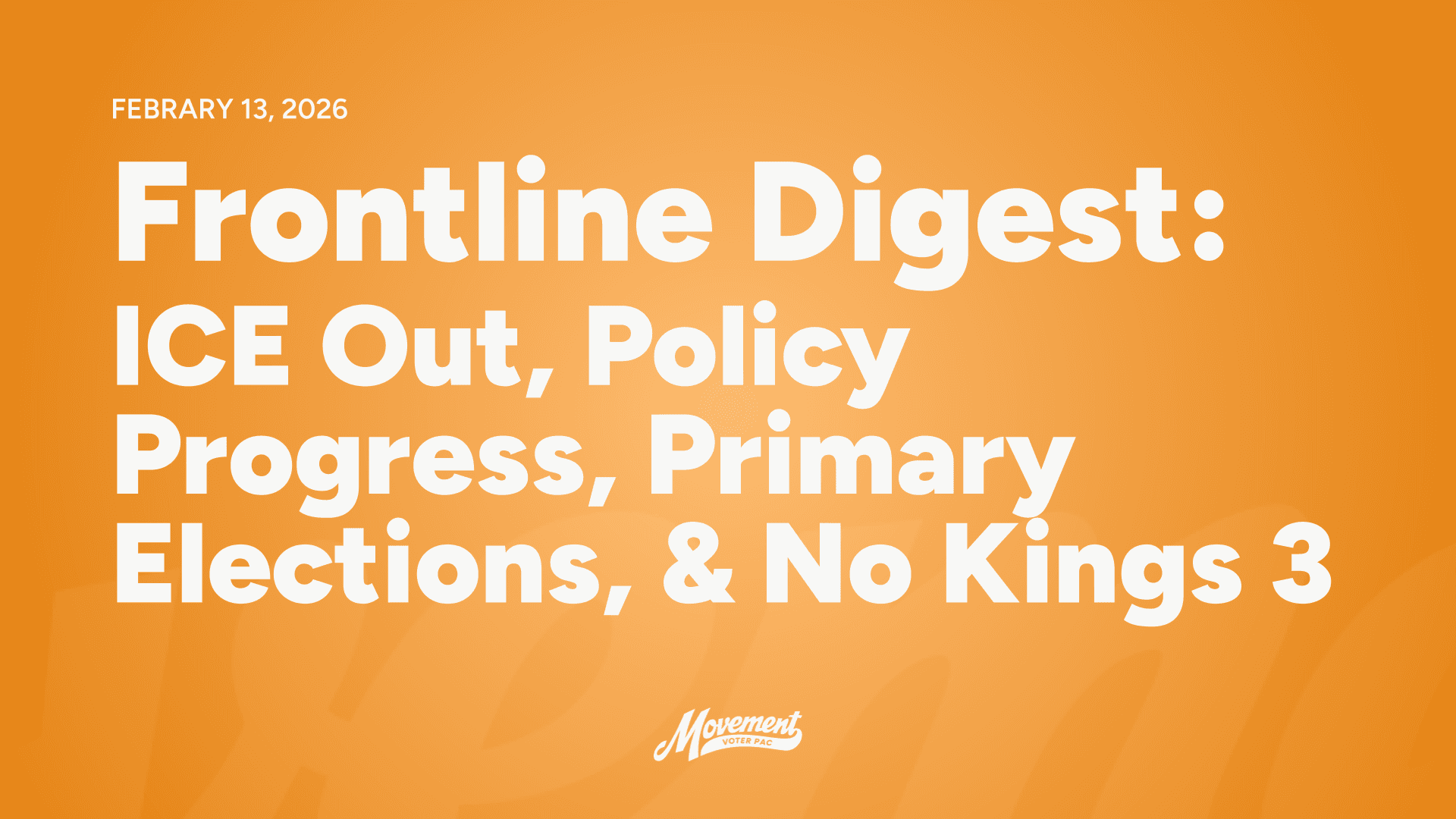The Taking Back Our Power (TBOP) campaign — led by a coalition of groups including MVP partners Community Change Action, Michigan partners including Detroit Action, MOSES Action, Michigan United Action, and Clean Water Action — aims to pass comprehensive state legislation to prevent regulated monopoly corporations and companies seeking government contracts from making political contributions.
Through the campaign, this coalition has asked all state legislators to pledge to support this pro-democracy legislation. So far, 19 lawmakers have signed on, including four battleground swing districts. In the state's August 6th primary, the coalition successfully defended all incumbent pledge-signers, including Rep. Dievendorf, who won her last primary by only 26 votes and this year won 67% to 33%.
Now, the coalition is educating voters in ten competitive state legislative districts in the lead-up to the November general elections, with the goal of defending five vulnerable pledge-signers and flipping the seats of at least two pledge-refusers.
In the context of the 2024 Presidential race, this campaign has far broader implications. By elevating a state-level issue with proven mass appeal, the coalition has identified a way to galvanize pro-democracy voters — including those who typically sit out of elections. Not only could this campaign reshape state politics, but it could create a "reverse-coattails" effect that gives Democrats the margin of victory in Michigan's U.S. House, U.S. Senate, and Presidential races.
Beyond its potential impact on the federal balance of power this November, this campaign is brilliant for another reason: It is successfully educating voters about the effect of money in their state politics on real, concrete issues they care about, such as energy affordability and access.
"We suffer when corporations have undue influence over the elected officials who are supposed to be looking out for us. For example, because for years DTE and Consumers Energy have dumped millions into Lansing to escape accountability, Michiganders pay the highest electric rates in the Midwest for the worst power outages."
— Taking Back Our Power campaign website
For a deeper dive on the sophistication of their campaign, here is a report-back we just received on their polling and messaging strategy (lightly edited):
We just got our full polling results back and (with all the grains of salt that come with any polling) they seem great! Based on these results we've developed canvassing messaging connecting our issue to healthcare costs and inflation in addition to the power outages. Here are some strategy-related highlights that affirm the theories behind the campaign:
TBOP is overwhelmingly popular and our messaging wins, including in battleground districts.
- Overall: 81% support before messaging (59% strongly support). Goes up to 86% after hearing both sides’ arguments (61% strongly support). 71% are more likely to support a candidate publicly backing the policy despite pressure from big corporations (47% much more likely). Of those supporters, 60% are more motivated to vote to support that candidate (32% much more motivated).
- Battleground districts: 80% support before messaging (60% strongly support). Goes up to 90% support after hearing both sides’ arguments (68% strongly support). 73% more likely to support a candidate publicly backing the policy despite pressure from big corporations (52% much more likely). Of those supporters, 60% are more motivated to vote to support that candidate (32% much more motivated).
Being aware that a candidate is courageous enough to support TBOP despite corporate pressure can motivate unreliable voters to the polls.
- 160 respondents (23% of sample) participated in 2/4 or fewer elections 2016-2022. Of that group, 63% are more likely to support a candidate that publicly supports the policy despite corporate pressure (43% much more likely). Of those that are more likely to support the candidate, 63% are more motivated to vote to support that candidate (35% much more motivated).




